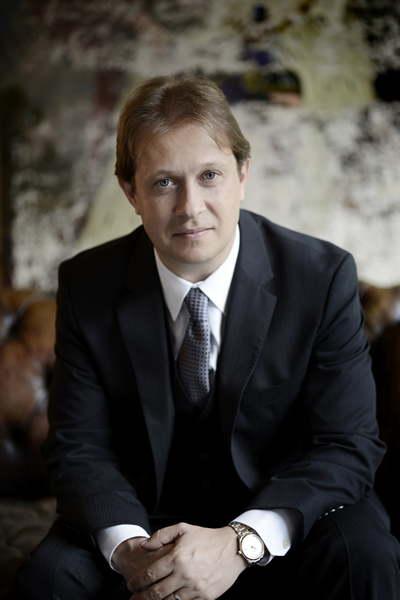Morlot, CSO serve up program with clever French twist

For his second and final week with the Chicago Symphony Orchestra, conductor Ludovic Morlot led a program that offered a sort-of pendant to last month’s French festival, cleverly setting music of Ravel alongside related works by a Russian and American.
The opening pairing of items by Gershwin and Ravel Thursday night was especially felicitous. Gershwin invested his populist tone poem An American in Paris with robust American jazz and Ravel mined the American genre to more dramatic effect in his Concerto For the Left Hand.
One of many works commissioned by pianist Paul Wittgenstein who lost his right arm in World War I, Ravel’s five-digit concerto is a darker, more probing work than his concurrent ambidextral Concerto in G major, performed on the same stage just two weeks ago.
Soloist Denis Kozhukhin made a bracing CSO debut even using just 50% of his resources. The Russian pianist brought concentrated power and fresh, limpid poetry to the arc of this single-movement work, keeping the contrasts in skillful alignment. Morlot and the orchestra provided attentive support, the conductor setting the introspective mood with a broodingly spacious introduction. Miles Maner floated an eloquent, aria-like contrabassoon solo.
The preceding performance of An American in Paris found the French conductor taking a decidedly continental view, more refined than characterful, and somewhat underplaying Gershwin’s cocky Yankee stride. The jazz element felt decidedly muted with a rather polite take on the Charleston theme. Morlot ramped up the energy in the closing section but Leonard Slatkin’s sassy, high-stepping performance with the CSO a year ago had much greater vitality and panache.
Also, while one has to be glad to hear any American music at Orchestra Hall in the Eurocentric Muti era, the Gershwin was performed just last season. Too bad those in charge of CSO artistic planning don’t seem to know–or care–that there’s substantially more to homegrown 20th-century music than An American in Paris.
Stravinsky was fond of table games, and wrote his ballet Jeu de Cartes (Game of Cards) in Paris. The work—cast in “Three Deals”—is among his most playful and effervescent scores, full of harmonic and rhythmic curveballs and wry musical quotations, most notably a snatch from Rossini’s Barber of Seville Overture.
Morlot, music director of the Seattle Symphony, was clearly in synch with the lightly satiric style, leading a deft and vivacious performance and investing the ceremonial fanfare that opens each deal with mock gravitas. The woodwinds had a field day with Stravinsky’s acerbic writing, with especially lively contributions from bassoonist William Buchman and guest flutist Thomas Robertello.
The evening concluded with Ravel’s La Valse. The cynical edge and haunted fin-de-siecle atmosphere were rather subsumed in Morlot’s brisk and straightforward rendering, though the musicians delivered a strongly committed and boisterous performance.
The program will be repeated 8 p.m. Saturday. A “Beyond the Score” Ravel presentation will include performances of the Concerto for the Left Hand and La Valse 7:30 p.m. Friday and 3 p.m. Sunday. cso.org; 312-294-3000.
Posted in Performances






Posted Jun 05, 2015 at 11:19 pm by Frank Monnelly
Pianist Denis Kozhukhin gave a bracing account of the Ravel Concerto for the Left Hand. If you can, it is a must hear. One can only hope the CSO brings him back. Mr. Kozhukhin has a prodigious sound and technique. Of some interest was watching his right hand. At times it rested on his right thigh, or clutched the top of the piano or the side of the piano. It definitely wanted in on the action. It is a tribute to Ravel that the cadenzas sounded as though two hands (at least) were playing this awesome work.